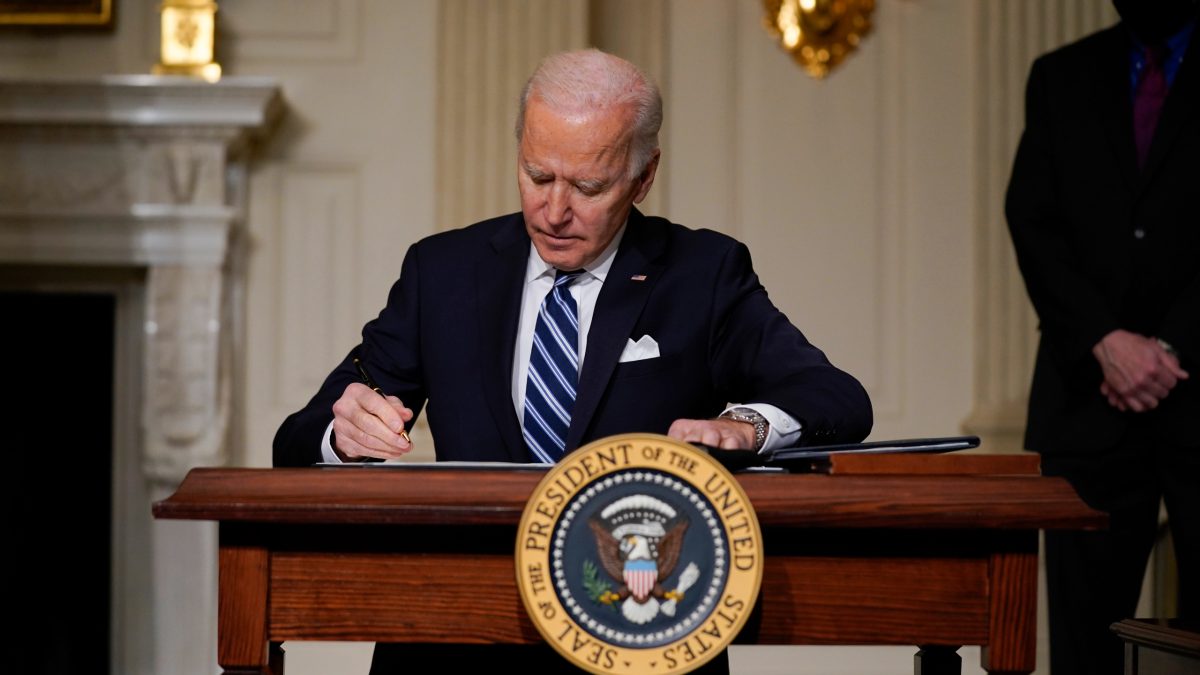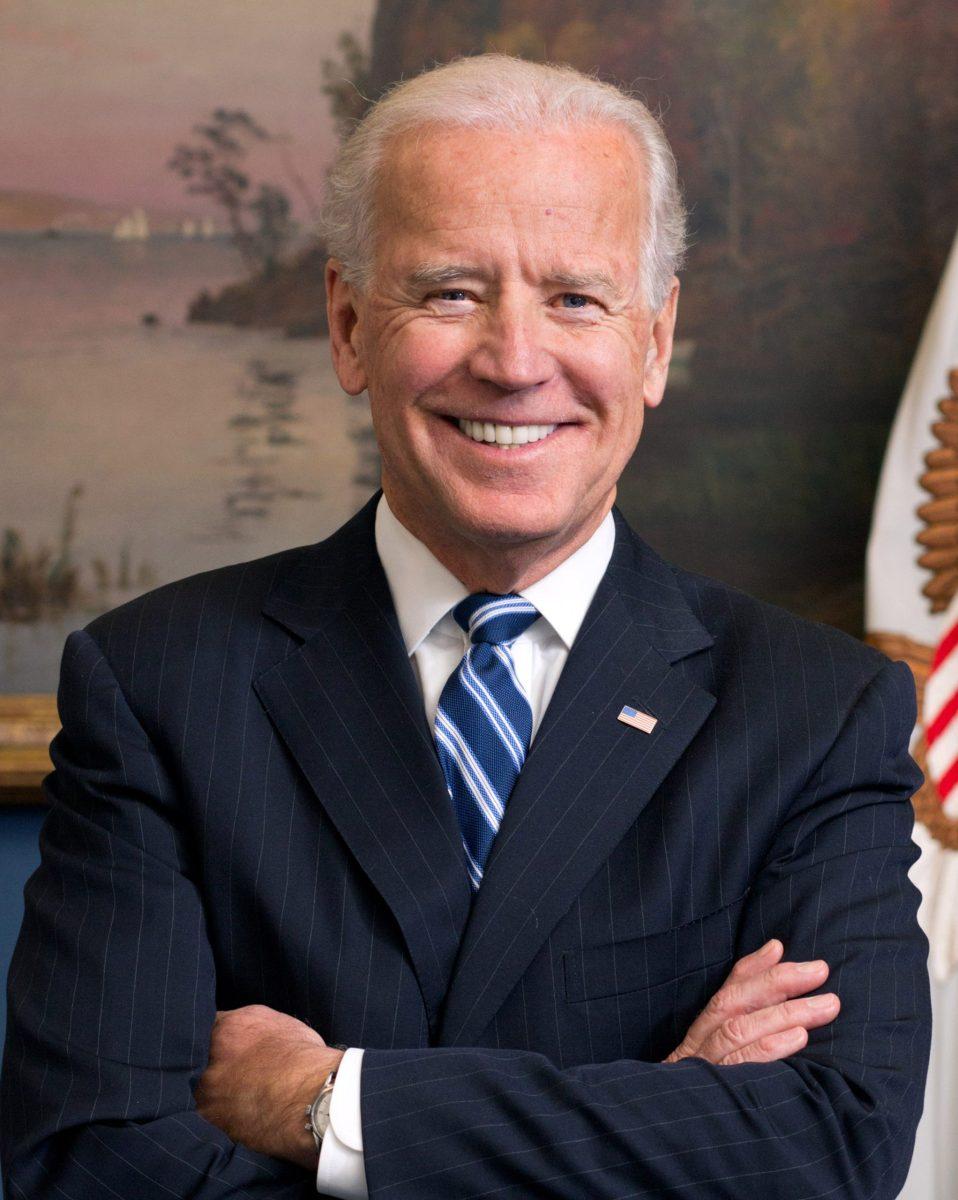[one_third]Liberal – Colin Bayne
Governor Phil Murphy has recently signed an executive order which requires all financial institutions to disclose their deals with gun manufacturers and distributors and requires the banks and manufacturers to confirm that they adhere to a list of “applicable public safety principles related to firearms” or have “adopted any code of conduct or principles related to gun safety or responsible sales of firearms” respectively.
Some on the right are trying once again to frame this as an attack on the Second Amendment rights of U.S. citizens, but to say such a thing is surely a reach. Increased reporting requirements allow for more transparency in the market, and require all companies to be conscious of the business they do. This policy will inform the public of the partnerships of many firms who would otherwise not disclose such information, allowing more community involvement in effecting change as the people (and the much-loved conservative free market) make better-informed decisions about which companies to support.
Some have even claimed that the new refusal of the N.J. government to do business with gun manufacturers and distributers that do not adhere to N.J.’s gun control laws represents a violation of the First Amendment rights of corporations. However, the First Amendment does not guarantee any person or company the right to government investment, especially not in a competitive market situation as this is.
In reality this order is a new approach to the issue of gun control, but one which is not in a vacuum. Governor Murphy has signed into law numerous gun control laws over the course of his term, and he has described his approach to this issue to be one involving all levels of government. The executive order represents a facet of his overall approach to the issue of gun violence, rather than an isolated incident.
From a leftist point of view the order itself is hardly revolutionary. A good portion of the order is entirely engaged in establishing transparency and reporting requirements for financial institutions, as well as pledges for the promotion of gun safety and adherence to all existing gun control laws. This is a rather simple and somewhat token bureaucratic step towards more effective gun control. The refusal of the N.J. government to purchase guns from manufacturers and distributors not in line with the state’s gun control laws is much more powerful, and a good step in the right direction. In a society ruled by capital, wielding capital can be a very effective tool in bringing about meaningful change.
[one_third]Independent– Daniil Ivanov
New Jersey Governor Phil Murphy has signed an executive order regarding gun control that affects gun manufacturers and financial institutions that have any dealings with the gun trade.
The rules set down by the Governor are not particularly harsh in any way. In fact, transparency in the way that manufacturers and financial institutions are handling gun control is a common sense gun law that does not pry guns out of anybody’s hands. It also deals with interstate commerce, which all gun control action should do since New Jersey’s ironclad legislation becomes useless when nearby states offer more weapons with less hassle.
I agree with the Governor’s sentiment that gun control should be stricter in some way or another, but my problem is that he carried it out with an executive order. The order is multifaceted, incorporating the manufacturers, banks and state laws into a series of regulations that impact the economy of multiple states.
If a gun manufacturer in another state wishes to deal with the state of New Jersey, it will probably have to make changes to its operation or simply not deal with New Jersey. Similarly, banks will have to monitor all gun transactions and have found themselves dragged into gun control.
Such extensive rules would have been better off going through the proper protocols of the New Jersey Legislature instead of through an executive order. The ruling does not look strong if the Governor had to force it into action rather than having the elected legislative body debate and draft the proposal for Murphy to sign into law. The legislative process would have also given the manufacturers and banks time to prepare for such a ruling. Murphy’s order also helps to paint the narrative of the liberals taking guns away from people when elected officials on the right do not get a say in how the state is run. At this point, it would look better publicly if Murphy at least spoke to a Republican friend or neighbor before acting.
Even then, Murphy’s anti-gun agenda would not suffer dearly by going through the legislative branch since both the State Senate and General Assembly have vast Democratic majorities. But, at least going through the legislative process rather than an executive order would give off the feeling that the state as a whole is being represented in these actions and that the fate of New Jersey’s gun control is not determined by Phil Murphy’s whims.
[one_third]Conservative – Mark Pothen
It seems as though the New Jersey state government is now going to blatantly engage in viewpoint discrimination and compel corporations to abide by laws that have not actually been legislated.
Governor Phil Murphy recently signed an executive order that would effectively allow the state government to refuse to do business with gun manufacturers and financial institutions if they do not uphold the set of principles that the Governor sees as being just.
There are standards for why the government would not be able to contract with certain businesses, such as anti-discrimination laws. However, there is no precedent for the state government to discriminate against businesses engaging in completely legal activity and for not assimilating into the principles that the government would like them to.
The First Amendment clearly lays out that the government is not allowed to discriminate against your viewpoint. There is a reason that this policy was not legislated and instead crammed into law by the executive branch.
Murphy also makes the order applicable to financial institutions, arguing that even engaging in legal commerce with gun manufacturers can be scrutinized by the government by way of not being able to receive government contracts. All of this points to a new tactic that the hard left seems to be utilizing with regards to corporations.
The “woke brigade” seems to be intent on politicizing every corporation to the point where a parallel economy forms and individuals of different political bends shop at businesses that align with their political ideology. This forces corporations to take political positions and is just another attempt to take away all common spaces and instead make them political. Some day soon, the left will have to realize this lunacy is terrible for the country.

































